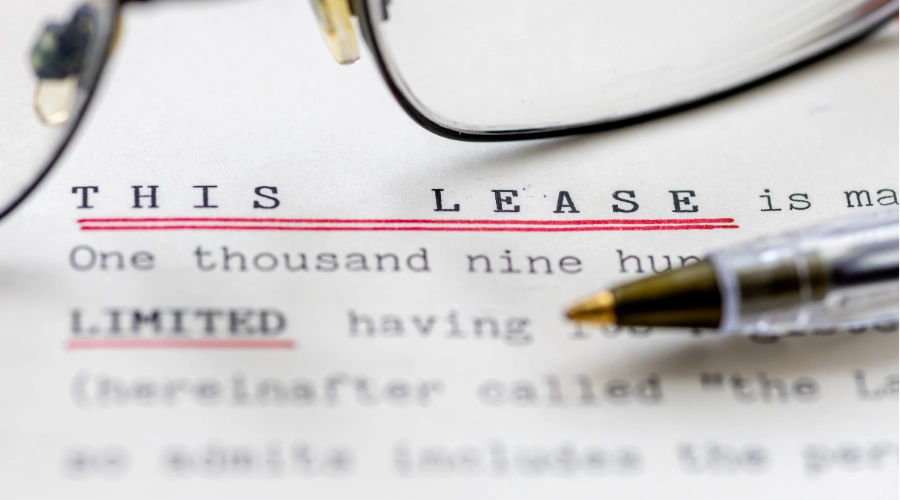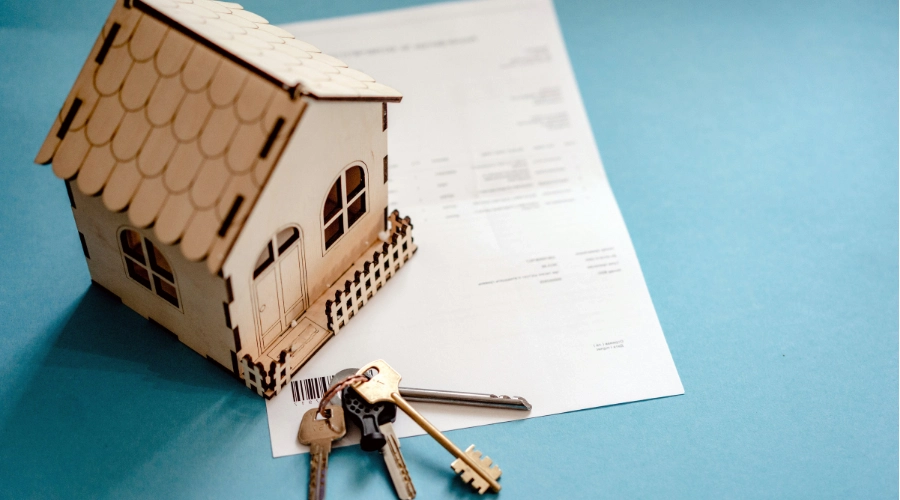It is important to understand the type of ownership when buying a property as it can affect your rights, responsibilities, and value of your investment. Normally the property ownership is categorized into leasehold and freehold property. Freehold ownership will give complete control of the land as well as building on it to the buyer, while leasehold ownership involves a more complex arrangement. It allows the buyer to have property for a specific period and the land will remain as freeholders.
There are various advantages and disadvantages to leasehold property, and this has confused a lot of people when deciding to purchase the land or building. Also, in fact some of them would argue that there are more disadvantages compared to advantages when it comes to leasehold property. So, it confuses people as to why anyone should buy a leasehold property in the first place. This blog will help you provide complete details about leasehold properties and the disadvantages of buying a property using a leasehold agreement.
What is a Leasehold Property?

Leasehold property is a type of real estate where the owner provides the rights to use the property to another person for a specific period, normally for over decades. Leasehold property is a temporary ownership arrangement, where the buyer does not own the land or property indefinitely.
Some of the features of leasehold property are:
- Leasehold lands normally take a longer duration, which may be between 25 to 30 years, to the extent of 99 years. It can also be extended as long as 999 years.
- Although it may seem like selling the land, in a legal sense, this is not the case because the upfront payment is not made as a sale consideration. The actual ownership of the property remains with the original owner, not the tenant.
- In a leasehold property, the buyers do not completely own the property, and the actual ownership is still in the original owner’s hands
- Normally, the lease will last for a period of 25 to 30 years.
- Other auxiliary costs like property tax and renewable contracts will always be taken by the buyer.
- For any redevelopment or reconstruction of the leasehold property, approval must be obtained from all the parties.
- For the execution of any lease deed and construction of the leasehold property, consent must be obtained from the state department
- Some states will provide an option for conversion of least-called properties into freehold properties. Iif there is an option available, then one must use them.
Disadvantages of Buying a Leasehold Property
Limited Ownership
One of the most important disadvantages of buying a leasehold property is the limited ownership. The leasehold agreement only provides the right to your home for a certain number of years, and it is called lease term. You will have a continuous contractual relationship with the landlords,and the property will be reverted at the end of the term. Normally, this means you have less control over the property than a proper freehold property.
Most of the flats that are created are normally leasehold. This will make sense as it allows the reciprocal obligations to be enforced, and further costs will be shared, but some landowners will abuse the system. Additionally, some of the new houses can be sold as leaseholds normally to create an additional income for the landowner as they sell them as an investment.
A lease must be carefully drafted to define precisely what you own, often clarified further in a Sublease Agreement. However, the description of the property extension included in the lease is often complex and sometimes unclear. This can lead to issues, especially when there’s a dispute over responsibility for structural repairs or when planning to extend your home. For instance, in the recent case of Gorst vs Knight, the landlord blocked the leaseholders from converting the cellar into living space because the lease failed to mention the necessity of subsoil rights.
Increasing Ground Rents
As a leaseholder, the buyer needs to pay the ground rent so that the landlord has the right to occupy their land. Traditionally this is a small or nominal amount, but in recent years the market has been raised, and the average value has become an investment option rather than just a way to acknowledge the interest of the landlord.
Most of the lease will include the provision to increase the ground rate at a fixed interval of time that is mainly stepped up or in line with inflation. Buyers must note that some owners will provide the amount to be increased exponentially. In these cases, the initial price may be considered small, but over time they will increase dramatically and reduce the value and marketability of your home.
Other Costs
Apart from ground rent, other costs will be added over time for leasehold properties. This will make them more expensive than to own freehold property. These costs include service charges and maintenance fees,
In the case of leasehold properties, buyers will be responsible for the payment of service charges that will cover the maintenance, upkeep of communal areas, insurance, and other share to facilities. There will be fluctuations in service charges, and unexpected increases can place some burden on the finances of the leaseholder.
Along With service charges, leaseholders may also need to provide finance for major repair and maintenance works like roof repair or improvements in the structures. These costs may be high, mainly if the building is old or there is a need for renovation.
These unpredictable costs can make it difficult for the financial planning of the least holders as they may face unexpected situations. There are many complaints from the least holders about the lack of control over the services they receive and the difficulty in the challenges of their quality and cost.
Consent Costs
If you are the buyer of the leasehold property, then the lease deed will restrict how you may use it This will also need the consent of the landlord in some situations for example, if you want to make any structural changes, then you must contact the landlord and get their permission before making any changes. Most landlords need to give their consent, and they cannot refuse without any reason. They can also only charge reasonable fees for handling your request, but these fees may still be higher than you expected. Also, getting this consent can take time and is stressful sometimes.
Depreciating Asset
Leases can be considered as a decreasing asset as they lose their value over time. If the least term is short, then the worth of the property will be less. This creates some problems, mainly if you are trying to sell or get athe mortgage. Many mortgage lenders will need at least a certain number of years remaining on the lease before approving a loan and short-term leases can make it more difficult to sell the property.
If the term of the lease reduces, the value of the leasehold property also decreases, and this can be called “lease decay”. That can impact the property market under resale value. A property that has a short lease may need a costly lease extension for maintenance of its value, and if the lease is not extended, then the property may even become unsellable, and buyers, as well as mortgage lenders, will turn away from the very short leases.
Leases that are less than 80 years can be harder to sell
Generally, the remaining length of a lease affects buyer interest significantly. After 80 years, the leasehold will revert to the freeholder, meaning the leaseholder will no longer retain any rights. This scenario is particularly concerning since leaseholders typically own properties for about 30 to 40 years before selling. Consequently, convincing someone to purchase a leasehold property with only 40 years left on the lease can be quite difficult, as they may be apprehensive about acquiring a property with limited future value. In the end, all the leasehold and freehold agreements are made mainly because those buying the least hold are trying to buy somewhere that they can eventually sell for a profit, and if it cannot be done, then the least becomes significantly less appealing.
Legal Troubles
Even if the least holders have some legal protections, They must be sure that they are being charged fairly and reasonably for the services. Some risks are still associated with the charges that are put forward by the freeholder. If you decide to take your freeholder or a management company to court for this issue, you may need to pay all their legal fees if you lose the case. This is something that often happens as a result of leaseholders taking the freeholder to court over the dispute of the service charges.
If the court case does not end in favour of the leaseholder, then they are expected to pay the legal fees that have happened for themselves as well as for the freeholder. So legal trouble can have its consequences.
Restrictions that You may Face as a Leaseholder

- There is a need for written permission for any small changes that need to be made to the property.
- There may be some restrictions in keeping pets like dogs or cats
- Home-based businesses may not be able to run as some lease agreements will prohibit this.
Considerations Before Buying a Leasehold Property
- Completely review the lease agreement for term of the lease, ground rent, service charges, maintenance fees, and restrictions.
- Evaluate the length of the lease.
- Access financial implications or commitments.
- Ask for legal advice.
Conclusion
There may be a lot of disadvantages in the leasehold property if we think about it, and it may not be a good thing to do for a lot of people as there is a great list of disadvantages mentioned above. However, leasehold properties may still have a certain way that people can take them if they want to, and it may work well for various people. In the end, the decision to buy a leasehold property is made by careful consideration of all the factors that have been involved. All the decisions will be made by the buyers with the advice of some legal advisors and consideration of their financial situations, aims, or plans.
FAQs
Flats are often leasehold because they allow for shared responsibilities among residents in communal areas. This setup ensures that maintenance and other costs are distributed fairly.
You’ll need the freeholder’s permission to make any major changes. Even minor alterations may require consent, and there can be fees involved.
Freeholders can refuse requests, but they need a valid reason. If they refuse unreasonably, you may be able to challenge the decision.
Leases under 80 years are less attractive because they’re more expensive to extend and harder to finance. Many buyers avoid properties with short leases.
Only if they breach the lease terms significantly, such as not paying rent or causing severe damage. Otherwise, leaseholders can stay for the lease term duration.

